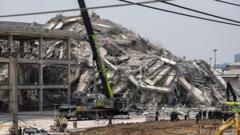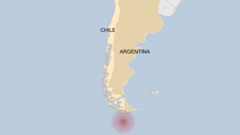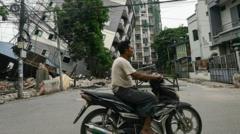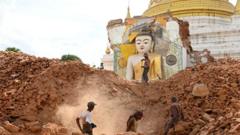Amidst the aftermath of a catastrophic earthquake in Myanmar, members of the diaspora, particularly in Thailand, experience deep emotions of helplessness and survivor's guilt. Many are unable to return home due to fear of political persecution, even as they try to support relief efforts for victims.
Stranded by a Quake: Myanmar's Diaspora Confronts Feelings of Helplessness
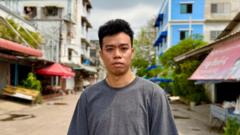
Stranded by a Quake: Myanmar's Diaspora Confronts Feelings of Helplessness
As a devastating earthquake strikes Myanmar, the diaspora community grapples with survivor's guilt and the inability to assist from afar.
In the wake of a powerful earthquake that recently struck Myanmar, citizens living abroad are grappling with conflicting emotions of guilt and helplessness. The quake, which has claimed over 2,000 lives and caused extensive damage particularly in the Sagaing region, has left many in the Myanmar diaspora feeling torn. Among them is Ko Naing, a labor rights activist residing in Thailand.
Having fled Myanmar nearly a year ago due to political persecution, Ko Naing now finds himself mourning the loss of his beloved great-uncle, who was killed during the earthquake. Reflecting on his turbulent emotions, Ko Naing stated, "I feel guilty because our people need us the most now. I feel helpless." His sentiments echo the feelings of many from Myanmar's diaspora community, as they witness the destruction from afar while being unable to return home due to the risks associated with political repression.
Thailand is home to approximately 4.3 million Myanmar nationals, many of whom have come to flee the military coup and ongoing civil unrest since 2021. The community plays a crucial role in Thailand's workforce, populating sectors from construction to agriculture. After the earthquake, large gatherings occurred in Samut Sakhon, a Thai town with a significant population of Myanmar workers, as they dealt with the news of devastated landmarks and lost lives back home.
For example, the collapse of a well-known bridge and ancient pagodas impacted many, including Thant Zin, a local shopowner from Sagaing who stated, “What a disaster! I feel so bad… We have never experienced this extent of damage before.” Despite being safe in Thailand, the emotional toll of the tragedy is profound.
Ko Naing recalled the moment he felt the tremors of the earthquake from his home in Samut Sakhon. As he anxiously awaited news of his family, he was relieved to learn that many were safe, except for his great-uncle, who had taken refuge in a local monastery that ultimately collapsed during the quake.
The diaspora's struggle is not only emotional but also practical, with many eager to contribute to relief efforts. Despite facing barriers to returning home, Ko Naing is working to organize humanitarian assistance for quake victims and support for fellow Myanmar construction workers in Thailand impacted by the earthquake’s repercussions.
“I keep thinking it would be good if we can be there, if we can do something… it’s depressing living here, seeing the news about my country,” he expressed, reiterating a desire to effect change and provide aid despite the geographical distance.
As the event unfolds, many, like Ko Naing, continue to process their emotions while finding ways to help others amid the ongoing struggles faced by their homeland. The sense of duty to aid those in need fuels the resilience of Myanmar's diaspora community in challenging times. They carry the hope of rebuilding, both in body and spirit, while still confronting the harsh realities of their situation.




